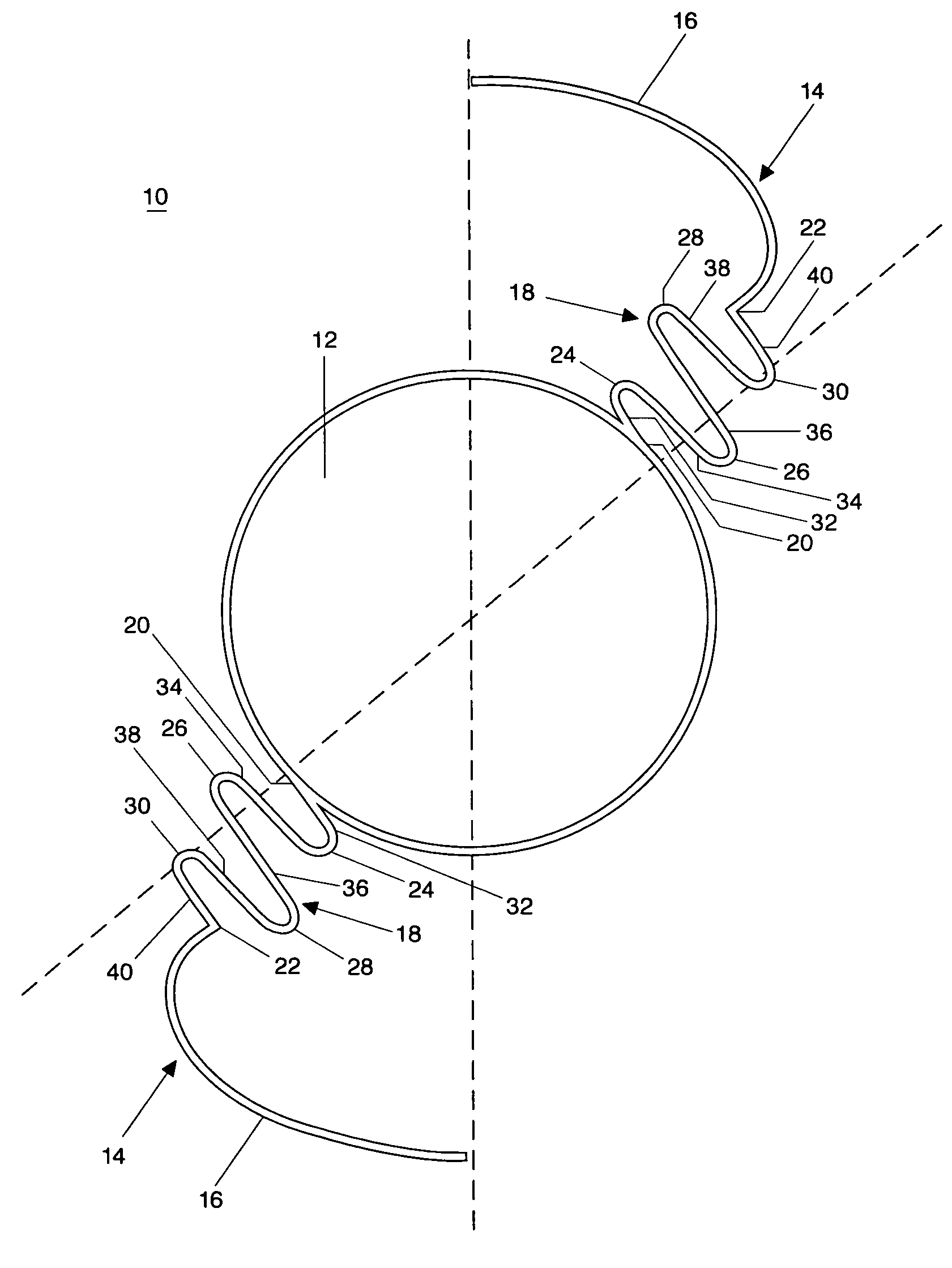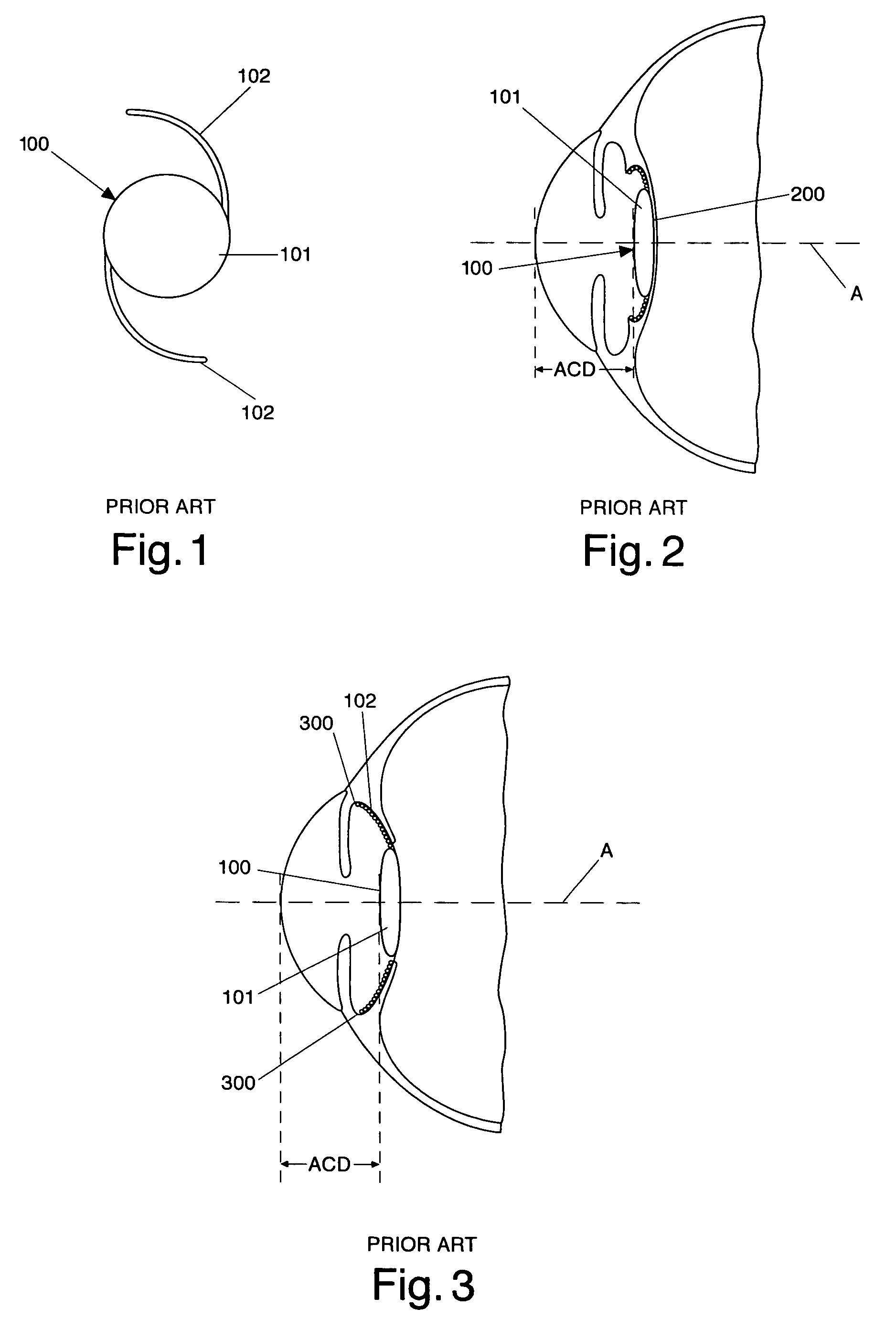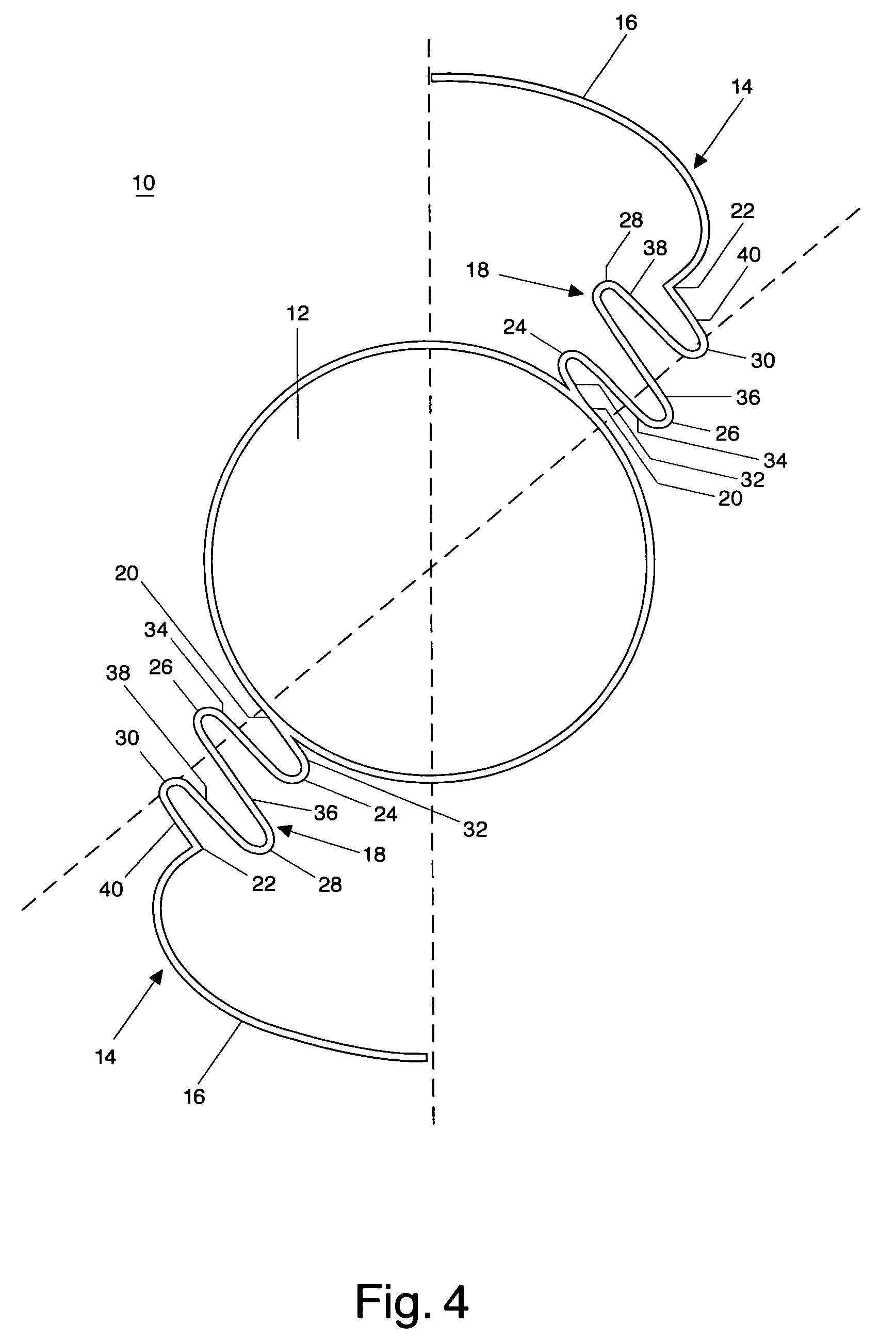Accommodating intraocular lens implant
a technology of intraocular lens and implant, which is applied in the field of implantable intraocular lens, can solve the problems of inability to adjust the refractive power of the lens, the inability to bifocal intraocular lens, and the inability to adjust the refractive power thereof, and achieve the effect of simple design
- Summary
- Abstract
- Description
- Claims
- Application Information
AI Technical Summary
Benefits of technology
Problems solved by technology
Method used
Image
Examples
Embodiment Construction
[0023]In FIGS. 4-6 of the accompanying drawings, there is shown an exemplary embodiment of an accommodating intraocular lens implant 10 according to the present disclosure for implantation in a human eye. The accommodating intraocular lens implant 10 includes an optic 12 adapted for coaxial alignment with a vision axis A of the human eye, as shown in FIG. 6, and at least one haptic 14.
[0024]The haptic 14, which is shown best in FIG. 5, includes an anchor portion 16 for receipt in a periphery of a capsular bag of the human eye, a cilairy sulcus of the human eye, or an angle of the anterior chamber of the human eye, for example. The haptic 14 also includes a sinuous portion 18 extending radially outwardly from a circumference of the optic 12 and including a proximal end 20 connected to the optic 12, a distal end 22 spaced from the optic and connected to the anchor portion 16, and at least four curves 24, 26, 28, 30 successively connected between the proximal end 20 and the distal end ...
PUM
 Login to View More
Login to View More Abstract
Description
Claims
Application Information
 Login to View More
Login to View More - R&D
- Intellectual Property
- Life Sciences
- Materials
- Tech Scout
- Unparalleled Data Quality
- Higher Quality Content
- 60% Fewer Hallucinations
Browse by: Latest US Patents, China's latest patents, Technical Efficacy Thesaurus, Application Domain, Technology Topic, Popular Technical Reports.
© 2025 PatSnap. All rights reserved.Legal|Privacy policy|Modern Slavery Act Transparency Statement|Sitemap|About US| Contact US: help@patsnap.com



